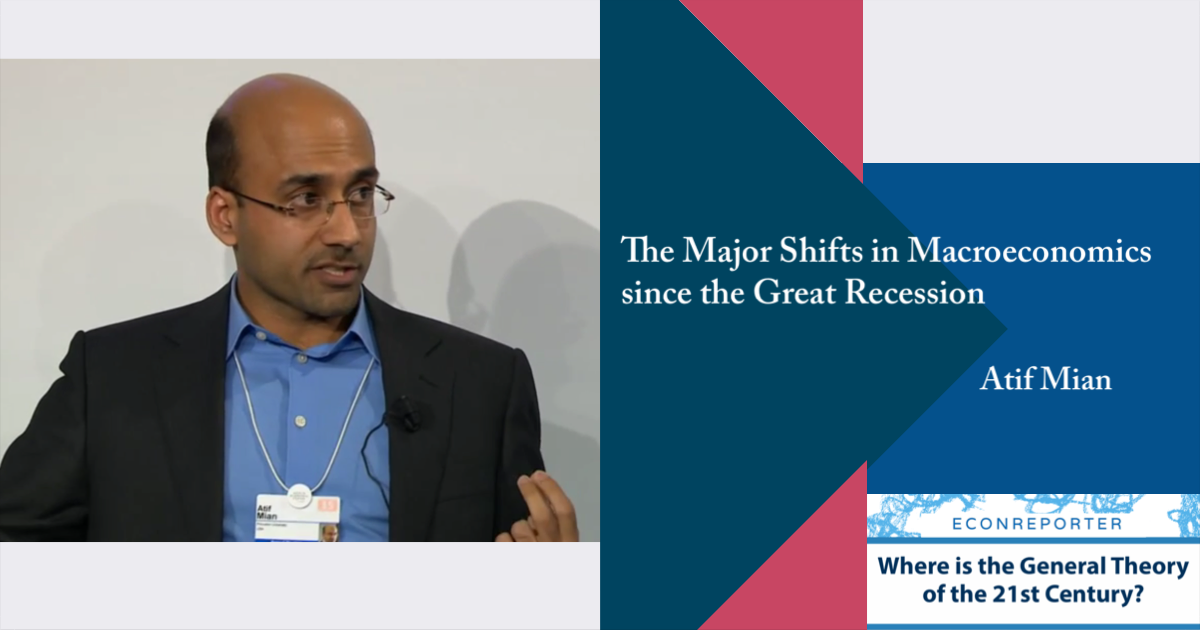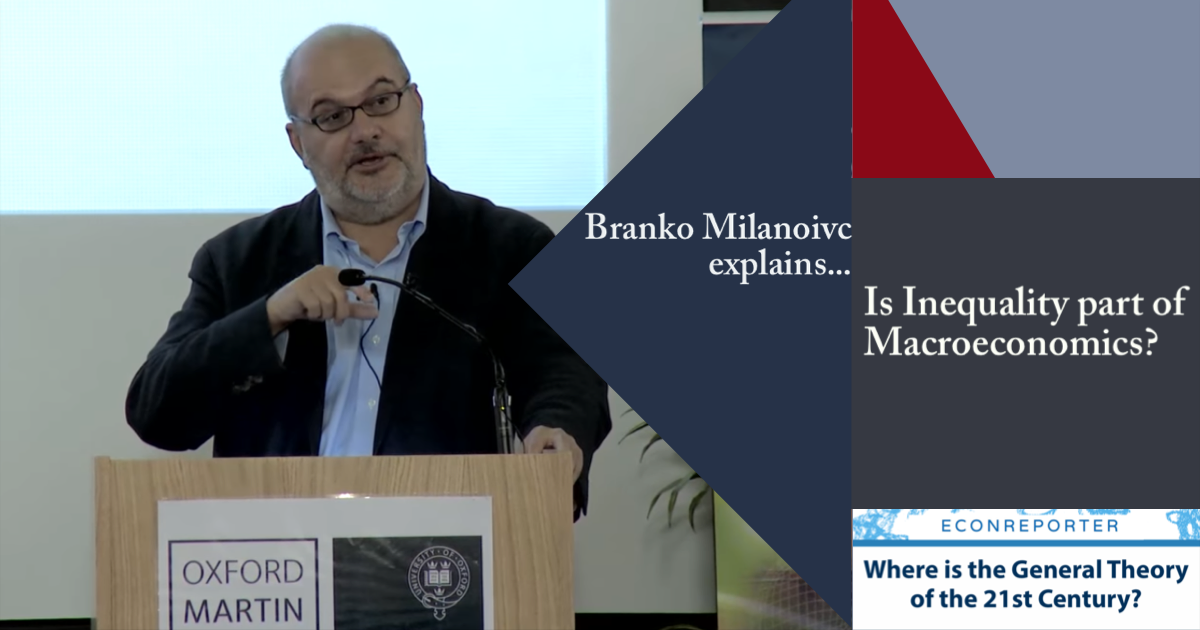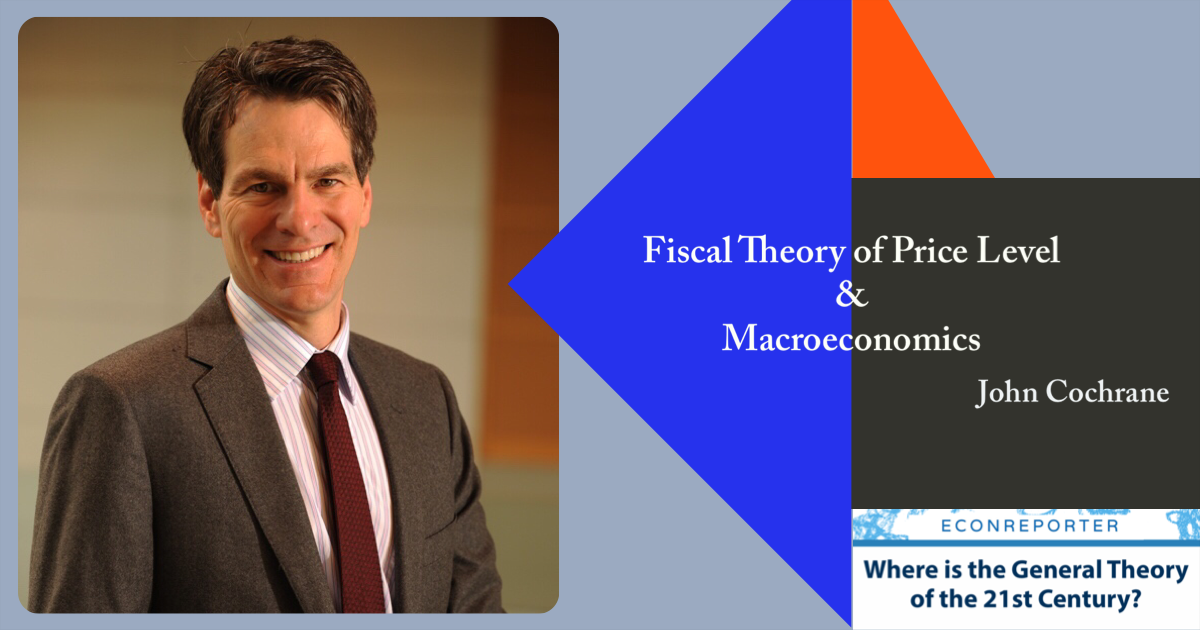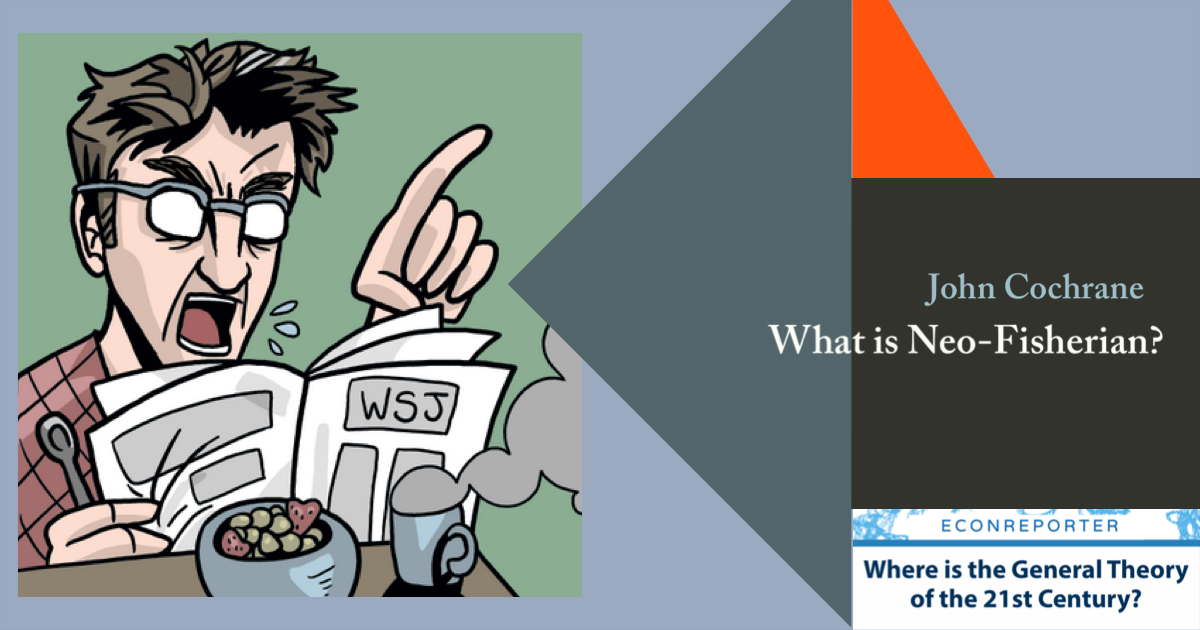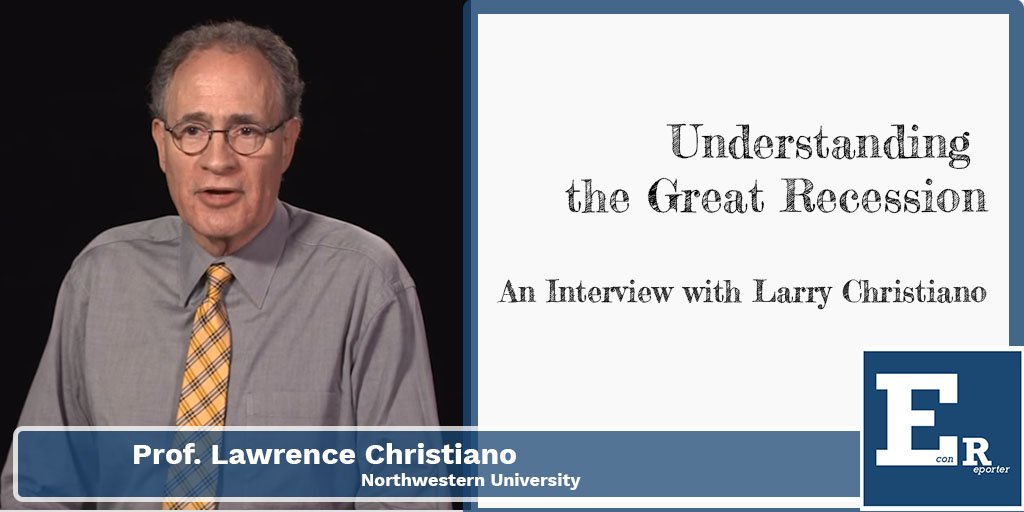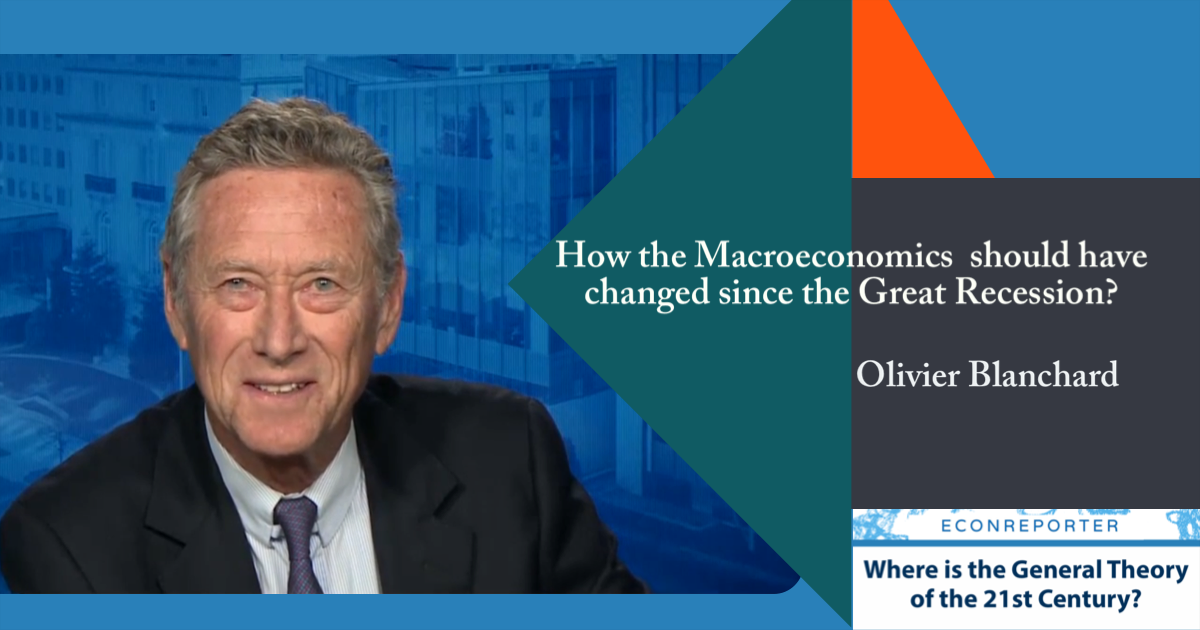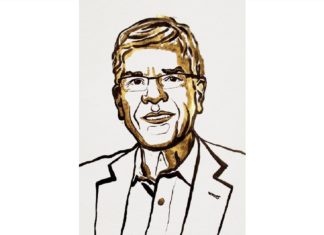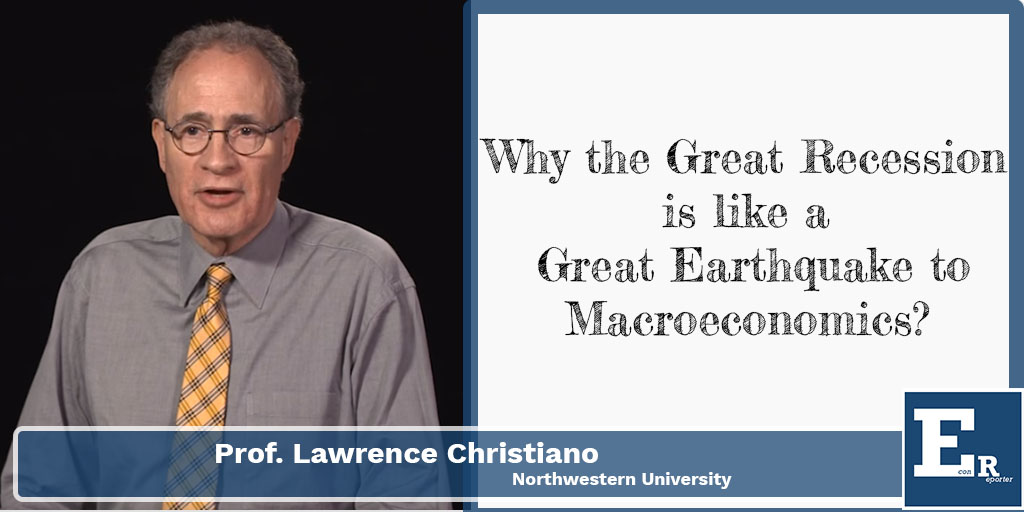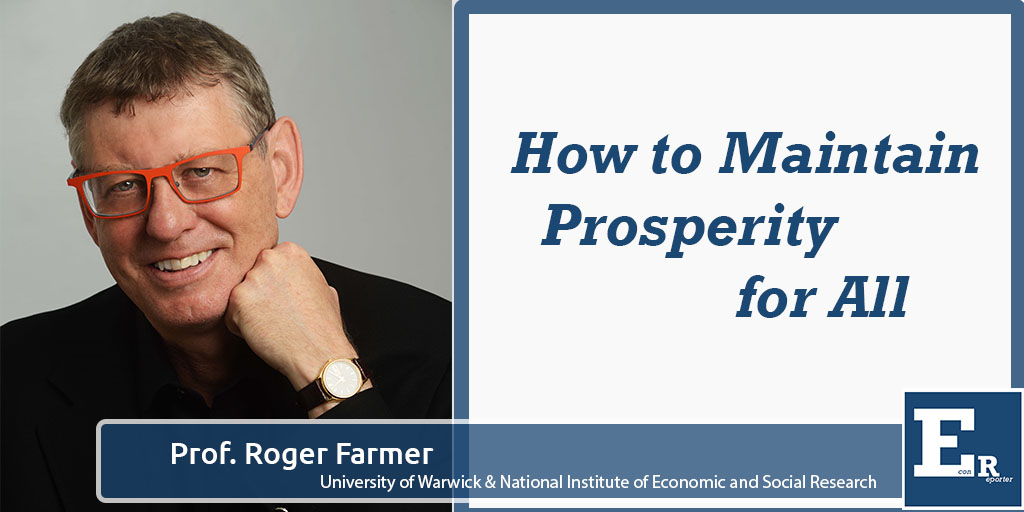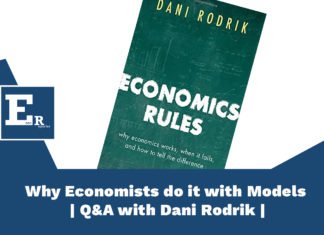Major Shifts in Macroeconomics Since the Great Recession | Interview with Atif Mian
Atif Mian, co-author of House of Debt, discusses what he thinks are the "revolutionary" changes in macroeconomic academia since the Great Recession.
Is Inequality part of Macroeconomics? | Interview with Branko Milanovic |
Branko Milanovic discusses whether the study of inequality can be considered as part of macroeconomics and how should macroeconomists incorporate his idea of Kuznets Waves into their models.
Fiscal Theory of Price Level and State of Macroeconomics | Q&A with John Cochrane...
John Cochrane talks about Fiscal Theory of Price Level and how can we apply this theory on the current macroeconomy.
What is Neo-Fisherian and FTPL? | Q&A with John Cochrane |
Cochrane discusses with us his view on the development in Macroeconomics since the Great Depression. He also explains what Neo-Fisherian and Fiscal Theory of Price Level are, and why they are important for understanding the current economic situation around the world.
Understanding the Great Recession | Interviews with Larry Christiano |
Larry Christiano, one of the most prominent researcher on DSGE model, explains what his research "Understanding the Great Recession" tell us about the Great Recession as well as labor participation rate's role in the developments of the Great Recession.
The model you should use to explain Macroeconomics to your Mum | Q&A with...
>Professor Olivier Blanchard further explained the role empirical research on DSGE models, how to teach undergraduates macro after the Great Recession, and his research on hysteresis.
Interview with Paul Romer – On Charter Cities (and HK) and Growth Theory
"There is a big difference between saying you want to allow for city-scale reform zones that will encourage reform of government and innovation in government, and saying that you want to do away with government entirely and let a corporate entity run a private city," says Nobel winning economist Paul Romer.
A Macroeconomic Earthquake | Q&A with Larry Christiano
In this interview, Prof Christiano shared his view on the development of post-2008 academic macroeconomics. We’ve asked Prof Christiano does he agree that modern macroeconomic models are too complicated for the general public, or even policymakers and if he agrees that economic models should be “simpler”. Does he think the recent revival of ISLM model a “good trend”? Should Macroeconomists hang on their faith in DSGE models? Should they explore alternative paths?
How to Maintain Prosperity for All | Interview with Roger Farmer
Roger Farmer explains : Why central banks should consider stock market intervention in stabilizing the employment markets?
Economics Rules – Why Economists do it with Models | Q&A with Dani Rodrik
Rodrik explained why good economists think in terms of models, and what are major differences between models and theory.
He also told us why macroeconomists' quest to find "the one true model" on the business cycle is probably misguided.


